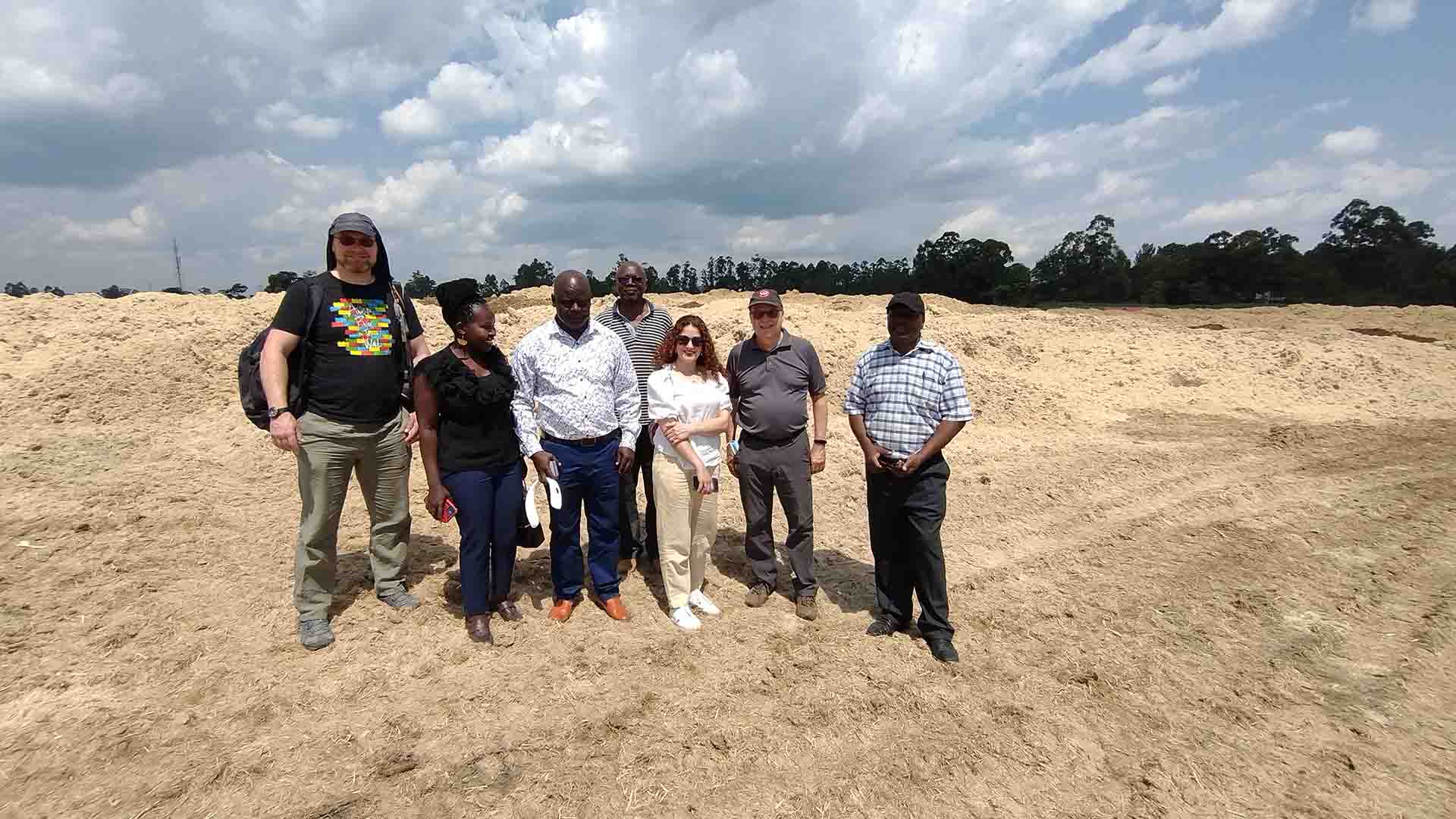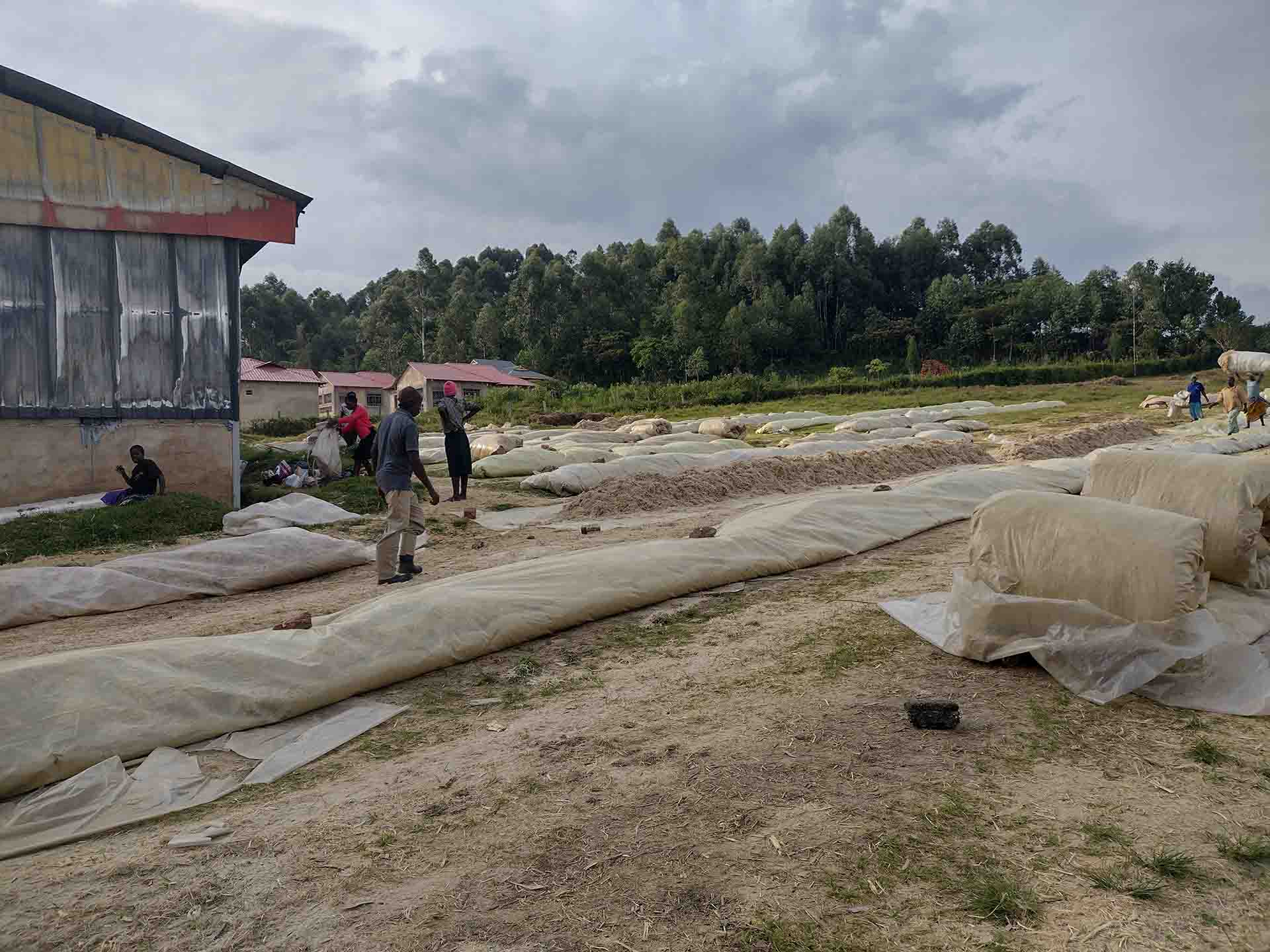
Eco-Transformation
The Journey of Sugarcane Waste into Clean Cooking Fuel
| School of Computing and Engineering

Prof. John Allport
Lead Academic
University of Huddersfield, School of Computing and Engineering.
In 2022, the World Association of Industrial and Technological Research Organizations (WAITRO) network held in Barcelona united global innovators and thought leaders, including Prof Joshua Abuya from Kibabii University, Kenya and James Devitt from the University of Huddersfield. Their discussions on rural African communities' needs inspired sustainable agricultural waste solutions. This led to a flourishing partnership at the WAITRO 2022 Annual Summit in South Africa, headed by the University of Huddersfield’s Prof John Allport, that would focus on transforming sugarcane waste into cooking fuel.
The Project
Sugarcane is a major crop worldwide. Kenya's sugarcane industry generates vast amounts of waste, including leaves and bagasse, the dry, pulpy, fibrous material left after extracting juice. One hectare produces 93 tonnes of cane, 12 tonnes of raw sugar, and over 80 tonnes of waste. While some waste is used as mulch, bagasse can be repurposed for paper, animal feed, or as fuel for sugar mills, promoting sustainability.
Excess bagasse, however, often exceeds the fuel requirements of sugar mills and is left to decay, causing environmental damage. In one town, four sugar mills dump an average of 50 truckloads of bagasse daily, releasing methane and polluting waterways. Although bagasse can be repurposed, processing demands and initial investments are needed.
Forster Andanje of Carbon Footprint Ltd developed a method to convert bagasse into cooking fuel briquettes, offering a sustainable alternative to charcoal. However, drying wet bagasse in Kenya's tropical climate is challenging.
This partnership formed to explore turning this waste into valuable cooking fuel. This two-year venture connects the Global North and South to address local and global environmental issues through innovative waste management solutions.

Partner Institutions
- Kibabii University, Prof. Joshua Abuya (Kenya)
International Partnerships
Prof John Allport's visit to Kibabii University led to applying for, and award of, funding through the African Agriculture Knowledge Transfer Partnership (AAKTP) pilot programme modelled after the UK's KTPs, funded by Innovate UK, that supports collaborations in Kenya, Nigeria, Ghana and South Africa.
In September 2023, the University of Huddersfield, Kibabii University, and Carbon Footprint Ltd, secured £250,000 to turn excess bagasse into clean cooking fuel. This project aims to improve health outcomes, reduce reliance on illegal logging for charcoal, and focus on sustainability, waste management and health improvement.
A Memorandum of Understanding was signed between the universities, showcasing the transformative potential of global partnerships. By providing a sustainable alternative to charcoal, the briquettes enhance air quality, improve respiratory health in rural households, create economic opportunities and foster self-sufficiency, paving the way for a sustainable future.
It has been a real experience developing the relationship with the team in Kenya, with all partners learning a lot about each other and gaining invaluable experience. None of this would have come about without the initial meeting between James and Joshua at WAITRO in Barcelona bringing us all together in South Africa. It only takes a small thing to start something big if the will is there, and with this project, there is a passion from all involved to make it work.
With every step forward, we are reminded of the power of collaboration and the potential for change. And as we work tirelessly to bring this project to fruition, we know that we are not alone. Together, we will pave the way for a brighter, more sustainable future for all.
About the Researchers
Prof John Allport was appointed Professor of Automotive Engineering at the University of Huddersfield in 2013 having spent 11 years at Cummins Turbo Technologies. As part of that role, he also became Director of the Turbocharger Research Institute at the University. More recently, he has established the Energy Integration Laboratory, to synergise energy-related research across the School of Applied Sciences, School of Computing and Engineering and Huddersfield Business School with the University’s sustainability agenda. This living Energy Integration Lab will also give a framework and infrastructure for industrial collaborators who wish to implement their own synergistic energy systems. Prof Allport is a Fellow of the Institution of Mechanical Engineers, serving on several Committees and Panels.
Find out more about Professor John Allport.
Sustainability Development Goals related to this project
The content of this publication has not been approved by the United Nations and does not reflect the views of the United Nations or its officials or Member States.
The content of this publication has not been approved by the United Nations and does not reflect the views of the United Nations or its officials or Member States.
The content of this publication has not been approved by the United Nations and does not reflect the views of the United Nations or its officials or Member States.
The content of this publication has not been approved by the United Nations and does not reflect the views of the United Nations or its officials or Member States.
Projects
Interested in seeing our other global research collaborations?
Research
Discover our research in more depth over on our research portal, Pure.





